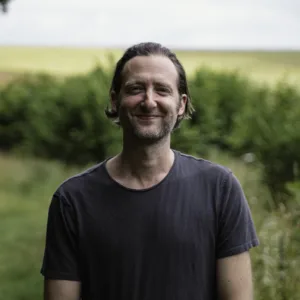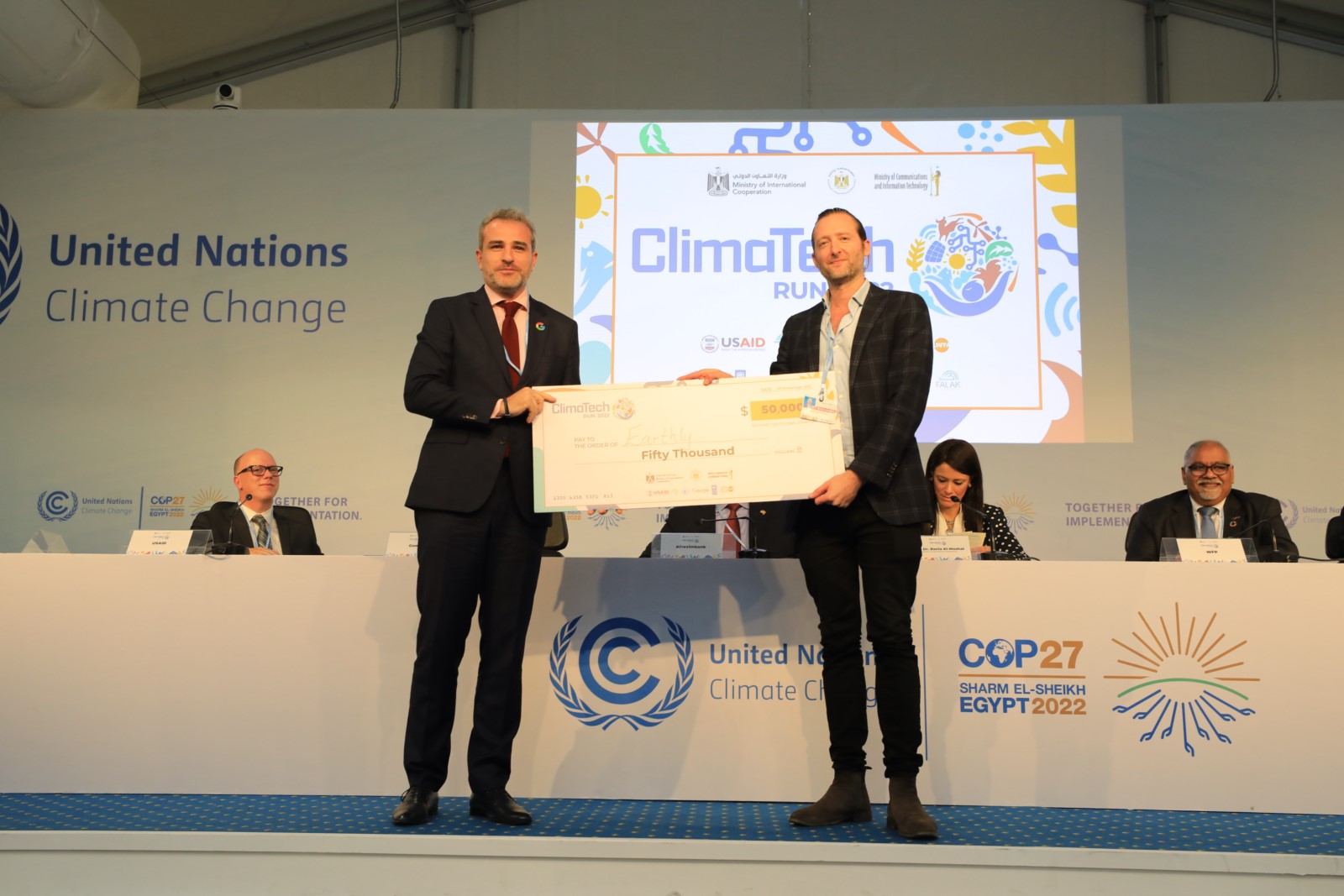Restoring nature, which involves recovering ecosystems that have been degraded, damaged, or destroyed, is absolutely crucial for our future on this planet, said Oliver Bolton, CEO of Earthly, in an interview with NewsEnergy. He will be present at the Climate Change Summit 2024, an event taking place from October 15-17 in Bucharest. Earthly’s CEO is a multi-award-winning entrepreneur, including the ClimaTech prize at COP27, the NatureTech 2023 award from the World Economic Forum, and the Virgin VOOM award from Sir Richard Branson.
At the Climate Change Summit 2024, you will also meet Oliver Bolton, the founder of four companies built for a better future, with a mission to protect and regenerate over 1% of our planet by 2030. Earthly empowers hundreds of other organizations globally to address the climate crisis and biodiversity collapse, actively contributing to the protection and restoration of our planet. Additionally, Oliver Bolton is a Member of the International Advisory Panel for Biodiversity Credits and a business advisor at Stop Ecocide International. He founded Europe’s first certified B-Corp company for healthy beverages, Waterbomb, and co-founded Vitl, the UK’s leading subscription nutrition brand.
NewsEnergy: Let’s begin out conversation, please, with recent news: ecocide landed at the International Criminal Court, after the proposal of three Pacific nations, Vanuatu, Fiji and Samoa. What is ecocide and what impact will have the law’s adoption, in your opinion, especially for corporate leaders and heads of state?

Oliver Bolton Earthly CEO – sursa foto: Climate Change Summit 2024
Oliver Bolton: Ecocide is defined as acts that cause “severe and long-term damage to the environment”, will hold corporate leaders and heads of state criminally accountable for their role in environmental harm. The three Pacific nations have taken bold action proposing that „ecocide” be recognised as a crime at the International Criminal Court (ICC), showing a significant shift towards global accountability. They aim to hold those responsible for environmental destruction accountable on the same level as genocide and war crimes.
When adopted corporate leaders could face international legal consequences for actions that result in significant environmental damage. This might compel companies to adopt stricter environmental policies and engage in more sustainable practices, fundamentally altering how they assess risk and manage their environmental impact. Heads of state and other government officials might also be held liable under this law. This will hopefully lead to more rigorous environmental protections and policies, reflecting a commitment to sustainable development at the national and international levels.
NewsEnergy: How crucial for our planet’s future is nature restoration and what is Earthly’s mission?
Oliver Bolton: Nature restoration is absolutely crucial for our future on this planet. It involves the recovery of ecosystems that have been degraded, damaged, or destroyed. Nature restoration is essential for several crucial reasons. First, it supports biodiversity conservation by restoring habitats that help conserve species on the brink of extinction, thereby maintaining the biodiversity essential for ecological resilience. Second, it aids in climate change mitigation; ecosystems such as forests, wetlands, and peatlands play pivotal roles in sequestering carbon dioxide. Additionally, restored ecosystems provide vital ecosystem services including water filtration, flood protection, and soil stabilization, all of which contribute significantly to human wellbeing and economic stability. Lastly, healthy ecosystems enhance resilience against environmental stressors and changes, such as extreme weather events and shifting climate conditions, which are increasingly critical as these challenges intensify.
Earthly recognises the urgent need to close a $700BN annual funding gap in nature conservation, a challenge exacerbated by trust issues and varying quality among nature-based projects. We address this with our rigorous evaluation process, where we examine 106 quality indicators across carbon, biodiversity, and social impacts. Our comprehensive approach enables organisations to confidently invest in leading nature-based solutions that align with their environmental and social goals. Out of 400+ projects assessed worldwide, only 8% meet our stringent minimum quality criteria. Our mission is driven by a commitment to protect and restore at least 1% of the planet by 2030, directing investments to the most impactful projects and ensuring maximum benefits for carbon sequestration, biodiversity, and communities.
NewsEnergy: What inspired you to start Earthly, and what has been the biggest challenge in promoting nature-based solutions for businesses?
Oliver Bolton: My son was born when the IPCC’s 1.5 degrees report was released and every major newspaper ran the headline: „we have 10 years to defeat climate change”. I imagined a future conversation with him in a decade where he would say to me: „your generation knew the severity of the climate & biodiversity crises, why didn’t you do more?”. It was at that moment I committed to focus the remainder of my working life tackling this challenge. Ultimately I want my children and future generations to have the same quality of life that I have been lucky enough myself to experience.
One of the biggest challenges in recent years has been the erosion of confidence in the voluntary carbon market. Scandals exposing low-quality projects have, on one hand, validated the need for rigorous project quality assessments like ours. However, they have also led many businesses to shy away from investing in nature protection and restoration, preferring to focus on decarbonization, which appears to carry less risk. But the reality is that now, more than ever, we must channel significant funding into nature. Nature-based carbon credits remain one of the most effective mechanisms to achieve this, driving both climate and biodiversity recovery.
NewsEnergy: Can you explain, please, how Earthly’s projects restore ecosystems and biodiversity? And a little bit more about the mechanism of purchasing biodiversity and carbon credits, automating the nature contributions.
Oliver Bolton: Our projects are designed to restore ecosystems and enhance biodiversity by focusing on nature-based solutions. These projects typically involve activities like reforestation, agroforestry, wetland restoration, and soil regeneration, which not only sequester carbon but also create habitats for wildlife, improve water quality, increase ecosystem resilience and improve peoples’ livelihoods.
Voluntary carbon credits can be purchased via spot (marketplace) orders or through longer-term origination, where new projects are developed for an upfront fee.
Voluntary Biodiversity Credits are aligned with the UK government’s DEFRA Biodiversity Net Gain (BNG) Units, breaking each unit into 9 sq/m credits registered through Earthly’s registry. This structure allows credits to be priced between £50 and £250, depending on the habitat.
Monitoring and verification (MRV) follow DEFRA’s methodologies, enhanced by geospatial analysis tracking Vegetation Health (NDVI) and Biomass Changes. Future updates will incorporate advanced tools like eDNA and bioacoustic monitoring to provide more robust evidence of biodiversity gains.
NewsEnergy: As a winner of the COP27 ClimaTech prize, how vibrant is the climate tech startups ecosystem and can you also tell us something about Romania, in this regard?
Oliver Bolton: There were entries from all around the world for the competition which really highlighted how vibrant the ecosystem is. One Romanian climate tech company I’ve come across which looks really exciting is SEEDPODS.
SEEDPODS focuses on large-scale reforestation through the use of drone technology. Their unique approach involves launching seedlings encased in biodegradable, aerodynamic projectiles from drones. These bio-projectiles are designed to penetrate the soil upon impact, creating the optimal conditions for seedlings to grow. This method is not only fast but also highly accurate, allowing them to plant up to 10,000 seedlings a day using just three drones. I love it!
NewsEnergy: You are also an adviser in The International Advisory Panel on Biodiversity Credits. Which solutions are needed to unlock investment for nature and how important are the biodiversity credits markets in this puzzle?
Oliver Bolton: The complexity of Biodiversity Credits lies in the fact that biodiversity is much more nuanced than carbon emissions. It can be measured in various ways, such as species uplift (% improvement in biodiversity) or the amount of land restored. Establishing international consensus on the best methodologies will be key to ensuring the integrity of this market. As demand continues to outpace supply, building trust and confidence in biodiversity credits becomes increasingly important. Fortunately, our Voluntary Biodiversity Credits are based on the UK government’s compliance framework, providing a solid foundation of trust and credibility from the outset.
NewsEnergy: Looking ahead, as global awareness of environmental issues grows, what do you see as the most significant opportunities for scaling nature-based solutions on a broader level?
Oliver Bolton: As global awareness of environmental issues increases, I think there are several key opportunities emerging to scale nature-based solutions (NBS) on a larger scale.
Integration into Policy: Embedding NBS into climate policies and international agreements, like the Paris Agreement, offers a crucial platform for scaling projects such as reforestation and ecosystem restoration. Clear metrics, such as biodiversity credits, will ensure integrity and global recognition.
Private Sector Investment: Growing demand for carbon and biodiversity credits creates opportunities for private sector investment. Companies can meet sustainability goals by supporting NBS through innovative financing, such as green bonds or environmental impact funds.
Technological Advancements: Tools like remote sensing, geospatial analysis, and eDNA improve monitoring, verification, and transparency. Technologies like SEEDPODS drone-based tree planting can make NBS more efficient and scalable.
As a speaker at Climate Change Summit 2024, what are your key messages for Romania and for the S-E Europe?
Oliver Bolton: My central message is one of hope. We already have the solutions at our fingertips; now, it’s about execution and building unstoppable momentum. Incremental, linear change is no longer sufficient, we need exponential transformation at a scale and speed the world has never seen before. From grassroots movements to global governance, we must unite in safeguarding not just our future but the future of generations to come. This moment calls for courageous and visionary climate leadership from governments, businesses, and decision-makers across all sectors. The time for bold action is now, our collective survival depends on it.
***
NOTE: The Romanian version of the interview can be read HERE.
Dozens of international and local speakers are exploring solutions for a greener future. The green transition, renewable energy, public policies, and ESG are among the most important topics addressed at the Climate Change Summit 2024, now in its third edition, once again supported by NewsEnergy as a media partner this year.

